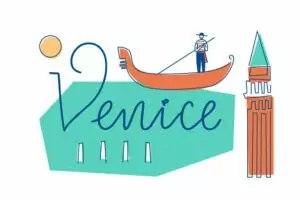If you have Italian roots or simply want to learn a heartwarming term to call your grandfather, you’ve come to the right place! In Italian culture, family is deeply cherished, and grandparents hold a special place in the hearts of their grandchildren. In this guide, we will explore various ways to say “Grandpa” in Italian, including different terms and endearing nicknames. Let’s dive into the world of Italian endearment for grandfathers!

✅ AI Essay Writer ✅ AI Detector ✅ Plagchecker ✅ Paraphraser
✅ Summarizer ✅ Citation Generator
The Classic Term: Nonno
The most common and widely used word for “Grandpa” in Italian is Nonno. It is an endearing term that reflects the warmth and love grandchildren have for their grandfathers. Nonno holds a significant role in Italian families, and their wisdom and affectionate presence are cherished by both young and old.
Example: Mio nonno mi porta sempre delle caramelle. (My grandpa always brings me sweets.)
Affectionate Forms of Nonno
In addition to Nonno, there are several other affectionate forms of address for grandfathers in Italian. These terms not only convey endearment but also strengthen the bond between grandchildren and their grandfathers. Here are some of them:
- Nonnino: This is a diminutive form of Nonno, expressing even more affection. It’s like saying “Gramps” in English, adding an extra touch of endearment.
Example: Ciao, Nonnino! Come stai oggi? (Hello, Gramps! How are you today?)
- Nonnetto: Another loving variation of Nonno, often used to show immense fondness and respect for the grandfather.
Example: Nonnetto, mi racconti una storia? (Grandpa, will you tell me a story?)
- Nonnuccio: This term is a delightful expression of affection, often used by grandchildren who share a special bond with their grandfather.
Example: Buon compleanno, Nonnuccio! (Happy birthday, Grandpa!)
Differentiating Paternal and Maternal Grandfathers
In Italian, there is a way to distinguish between a paternal grandfather and a maternal grandfather. This distinction adds a personal touch to the relationship and is a common practice among Italian families. Let’s take a look at how this is done:
- Nonno Paterno: This refers to your paternal grandfather – your father’s father.
Example: Mio nonno paterno ama cucinare le lasagne. (My paternal grandfather loves cooking lasagna.)
- Nonno Materno: This refers to your maternal grandfather – your mother’s father.
Example: Nonna e nonno materno verranno a trovarci domani. (Grandma and grandpa will come to visit us tomorrow.)
Great-Grandfather: Bisnonno and Trisnonno
If you want to go one step further and refer to your great-grandfather, Italian has specific terms for that as well!
- Bisnonno: This term translates to “great-grandfather”, and it holds the same affectionate sentiment as Nonno.
Example: Il mio bisnonno compierà 100 anni a Novembre! (My great-grandfather will turn 100 in November!)
- Trisnonno: If you are fortunate enough to have a great-great-grandfather, you can use this term, which denotes three generations above you.
Example: Il nostro trisnonno è un veterano di guerra. (Our great-great-grandfather is a war veteran.)
Using “Nonno” as a Nickname
In Italian culture, “Nonno” can also be used as a nickname for an elderly gentleman, especially if you have a close and friendly relationship with him.
Example Dialogue:
- Marco: Ciao, Giovanni! Come va? (Hi, Giovanni! How are you?)
- Giovanni: Bene, grazie! (Well, thank you!)
- Marco: Senti, Nonno, hai tempo per un caffè? (Listen, Grandpa, do you have time for a coffee?)
However, it’s essential to use this term with respect and only if you know the person well enough to avoid any misunderstandings.
Describing Someone with “Nonno” Mentality
In a lighthearted manner, Italians use “Nonno” to describe someone who has an old mentality or is a bit slow in doing things.
Example Dialogue:
- Sofia: Scusami, ho dimenticato il mio cellulare a casa. (Sorry, I forgot my phone at home.)
- Luca: Sei peggio di mio nonno! (You’re worse than my grandpa!)
This usage is meant humorously and without malice, merely poking fun at someone’s tendency to be a bit forgetful or old-fashioned.
Fare il Nonno: Embracing a Relaxed Lifestyle
The expression “fare il nonno” is used to describe young people who prefer to stay at home and relax rather than go out and socialize.
Example: Dai, non fare il nonno. Esci con noi a ballare stasera! (Come on, don’t be an old geezer. Come out and dance with us tonight!)
This term playfully encourages the person to leave their cozy comfort zone and enjoy some fun and excitement with friends.
Expressing Surprise or Scepticism with “Sì, Mio Nonno!”
When you want to express surprise or scepticism, you can use the phrase “Sì, mio nonno!” This is somewhat equivalent to saying “Yeah right!” in English.
Example Dialogue:
- Laura: Domani vado a fare una corsa di 30 chilometri. (Tomorrow I’m going to do a 30-kilometre run.)
- Elena: Sì, mio nonno! (Yeah right!)
This response adds a touch of humor to the conversation and implies that the speaker finds the statement somewhat hard to believe.
Nonnismo: A Term in Military Context
Interestingly, “Nonno” is not only used in family settings but also finds its way into the military vocabulary. “Nonnismo” is a military slang term used to describe the harassment and humiliation of new recruits by senior soldiers.
Conclusion
In conclusion, the term “Nonno” holds immense significance in Italian culture, symbolizing love, respect, and wisdom. Italians cherish their grandparents and use various endearing terms to express their affection. Whether you’re addressing your own grandfather or playfully teasing a friend with the term “Nonno,” these Italian expressions are sure to add warmth and charm to your interactions.
Next time you greet your Italian Nonno, remember the different variations and their meanings, and watch his face light up with joy knowing he is deeply loved and respected by his grandchild!
FAQ
How do Italians refer to their grandfathers?
Italians commonly refer to their grandfathers using the term “Nonno”. This endearing term is widely used and reflects the warm and loving relationship between grandchildren and their grandfathers. “Nonno” is a symbol of respect, wisdom, and affection in Italian culture.
Are there different words for paternal and maternal grandfathers?
Yes, in Italian, there are different words to distinguish between paternal and maternal grandfathers.
- Nonno Paterno: This term refers to your paternal grandfather, meaning your father’s father.
- Nonno Materno: This term is used for your maternal grandfather, which is your mother’s father.
These distinctions add a personal touch to the relationship and are commonly used in Italian families to differentiate between the two grandfathers.
What are some affectionate forms of address for grandfathers in Italian?
Italians have several affectionate variations of “Nonno” to address their grandfathers, expressing even more love and endearment. Some of these forms include:
- Nonnino: This is a diminutive form of Nonno, similar to “Gramps” in English, adding an extra touch of affection.
- Nonnetto: Another loving variation of Nonno, often used to show immense fondness and respect for the grandfather.
- Nonnuccio: This term is a delightful expression of affection, often used by grandchildren who share a special bond with their grandfather.
Using these variations strengthens the emotional connection between grandchildren and their grandfathers.
How do you say great-grandfather in Italian?
To refer to your great-grandfather in Italian, you would use the term “Bisnonno”. This term holds the same affectionate sentiment as Nonno and signifies your respect and admiration for your great-grandfather.
Are there any slang terms related to grandfathers in Italian?
While “Nonno” is the most common and respectful term, Italians also use the term “Nonnismo“ in a military context. “Nonnismo” is a military slang term that describes the harassment and humiliation of new recruits by senior soldiers. However, it’s essential to note that this term is unrelated to the loving and respectful way Italians refer to their grandfathers in family settings.
Follow us on Reddit for more insights and updates.





Comments (0)
Welcome to A*Help comments!
We’re all about debate and discussion at A*Help.
We value the diverse opinions of users, so you may find points of view that you don’t agree with. And that’s cool. However, there are certain things we’re not OK with: attempts to manipulate our data in any way, for example, or the posting of discriminative, offensive, hateful, or disparaging material.